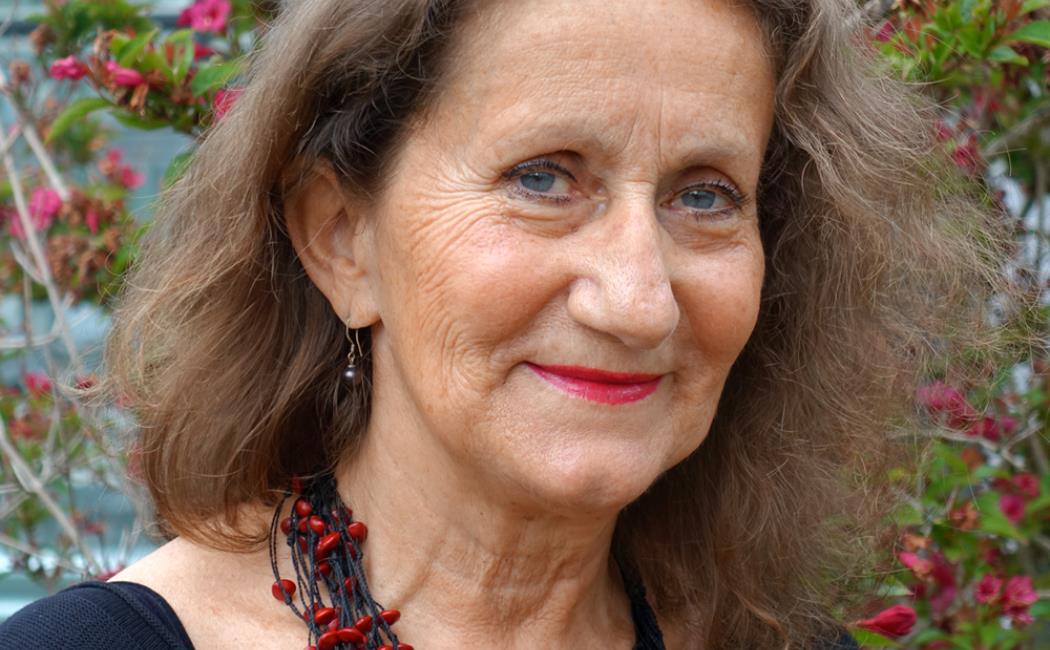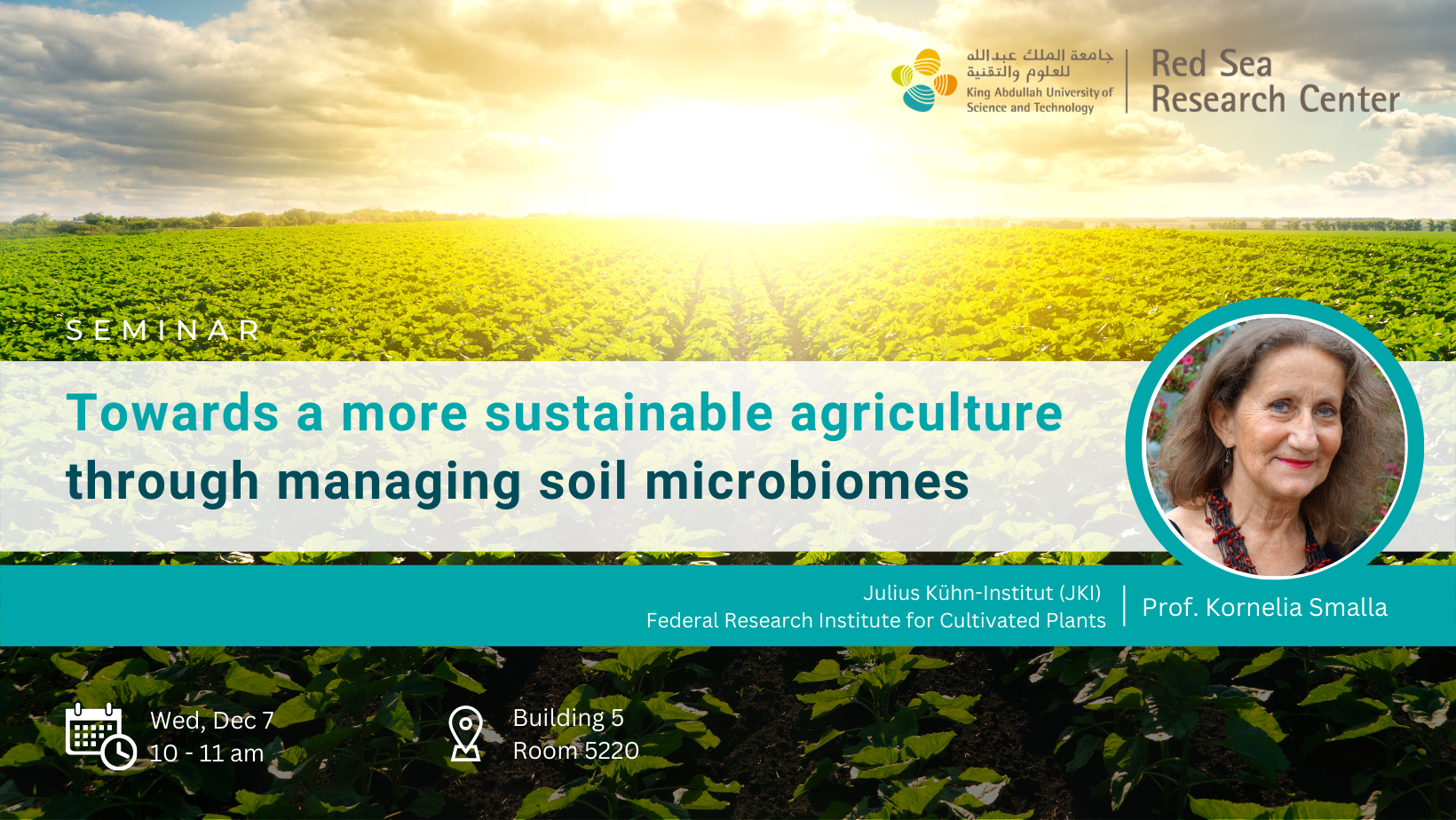



Zoom Webinar: https://kaust.zoom.us/j/94888347231
Abstract:
Sustainable agricultural production aims to meet future food, feed and fibre demands with the given natural resources and without adverse environmental impact or greater land consumption. However, intensification
of modern agricultural practices over recent decades with the ultimate aim of higher yields widely neglected environmental consequences. This resulted in a reduced soil fertility and biodiversity, accumulation of plant pathogens, environmental contamination
with agrochemicals and soil erosion jeopardizing soil health. Soil microorganisms are critical for soil-related ecosystem services. Harnessing their huge untapped and largely unexplored taxonomic and functional diversity and gaining a better mechanistic
understanding of plant-microbe interactions under various agricultural management practices can open up new ways to support an economically and environmentally benign plant production. In my talk, I will present research insights from different three
projects on modulating the rhizosphere microbiome through single inoculants, consortia or rhizosphere microbiome transplants performed under greenhouse or field conditions. Our data show that the external rhizosphere manipulation by inoculation with
beneficial microbial strains or multi-species consortia or microbiome transplants hold great promise for improving plant´s growth or resistance towards pathogens and drought.
Speaker: Prof. Kornelia Smalla
Speaker bio:
Professor Dr. Dr. h.c. Kornelia Smalla was the head of the microbial ecology group in the Institute for Epidemiology and Pathogen Diagnostics at the Julius Kühn-Institut (JKI), Federal Research Centre for Cultivated
Plants, in Braunschweig until August 2022. She studied chemistry and did her PhD in biochemistry at the Martin-Luther-University in Halle. The venia legendi for microbiology was obtained at the Technical University Braunschweig where she became an
adjunct Professor for Microbiology in 2006. From the beginning of the 1990’s Kornelia Smalla contributed to the new field of molecular microbial ecology. The development of cultivation-independent methods to study microbial communities in complex
environments and their response to pollutants such as antibiotics is a major theme of her work. Her long-term research interests are unraveling factors that shape the soil and plant microbiomes (e.g. agricultural management, inoculants, pathogens),
the transferable resistome and plasmid-mediated bacterial adaptation to changing environments.